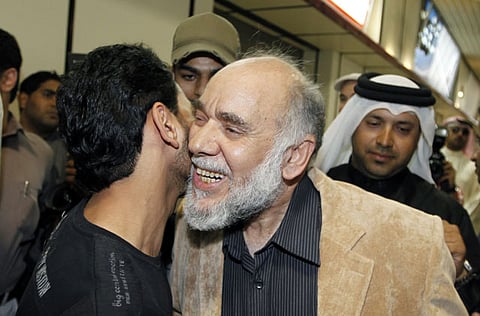Bahrain: Al Wefaq lawmakers resign
The largest bloc in the parliament earlier this month said that it was suspending its participation after the killing of protesters in demonstrations before announcing that it was pulling out of the lower chamber where it holds 18 of the 40 seats

Manama: The lawmakers representing Al Wefaq in the parliament have officially handed in their resignation, the society said.
The largest bloc in the parliament earlier this month said that it was suspending its participation after the killing of protesters in demonstrations before announcing that it was pulling out of the lower chamber where it holds 18 of the 40 seats.
The resignation letter was collectively signed by the lawmakers, a mixture of young and old religious figures and technocrats, and will be discussed by the other MPs.
The resignation does not affect the routine work of the lower chamber, but affects its significance.
A legal expert said that he expects the lower chamber to proceed with its current members until either partial elections are held after the summer recess or the chamber is dissolved, paving the way for new national elections. However, he said there were limited probabilities that partial elections are held to replace the MPs who resigned "because we have just come out of national elections."
The MPs in the lower chamber were elected on October 23 and October 30 for a four-year legislative term.
Al Wefaq, the largest political and religious society, carried the 18 constituencies where it fielded candidates, all men. Independent candidates outperformed Al Asala, the expression of Salafism in Bahrain and the Islamic Menbar, an offshoot of the Muslim Brotherhood, to win 17 seats.
In the 2006-2010 term, Al Wefaq had 17 seats and helped an ally to carry his constituency.
Its debut, after boycotting the 2002 elections, was marked by its boycott of the opening session and losing out leading positions.
In 2010, its landslide victory allowed Khalil Marzooq, one of its most prominent MPs, to be elected as first deputy speaker, a position that empowered him to chair parliamentary sessions.
Last week, the lower chamber held its regular weekly session despite the absence of the lawmakers from Al Wefaq, but several MPs called on the society to reconsider its position.
Under intense scrutiny
Al Wefaq is now under intense scrutiny as the society debates the merit of taking part in the national dialogue to help Bahrain out of one of its most dramatic crises.
Crown Prince Salman Bin Eisa Al Khalifa launched the initiative amid pledges that it would not exclude any party or group and would not dismiss any issue.
However, while the call earned him the applauses of several Western countries, the opposition in Bahrain seemed hesitant as the different groups in the alliance debate its merits.
The US welcomed the call for national dialogue and praised the "measured" steps taken by Bahrain to ease the tension and reach out to the people.
Bahrain pulled out the army off the streets of Manama and released 308 prisoners and detainees, including the members of an alleged terror network arrested in August on charges of forming and belonging to an organisation plotting to undermine the country's stability and security.
Hassan Mushaima, one of the alleged leaders and head of Haq Movement, returned to Bahrain from London on Saturday, vowing to support the decision of his supporters on the issue.
Haq, a movement that splintered from Al Wefaq in 2005 after the society decided to take part in the parliamentary elections, has been opposed to political mainstream.
National dialogue
In Manama, the Pearl Roundabout, the epicenter of the demonstrations, on Sunday remained under the control of the protesters, while a few miles away, a national coalition group of independent figures held a meeting to discuss options that will pave the way for the national dialogue.
According to the coalition, the move towards the dialogue should include a cabinet reshuffle, the formation of a committee to investigate the incidents in Bahrain since February 14, guarantees that no action will be taken against people who took part in protest movements, opening the national media to all ideologies and freeing all detainees.
The coalition said that it would discuss the issues with the newly formed National Unity Rally.
The Rally on Saturday evening said that in its capacity as the expression of a large section of the society, it should be consulted on all matters, including the naming or replacing of ministers.
Last week, the rally displayed its strength by staging one of the most massive demonstrations in Bahrain's history.



